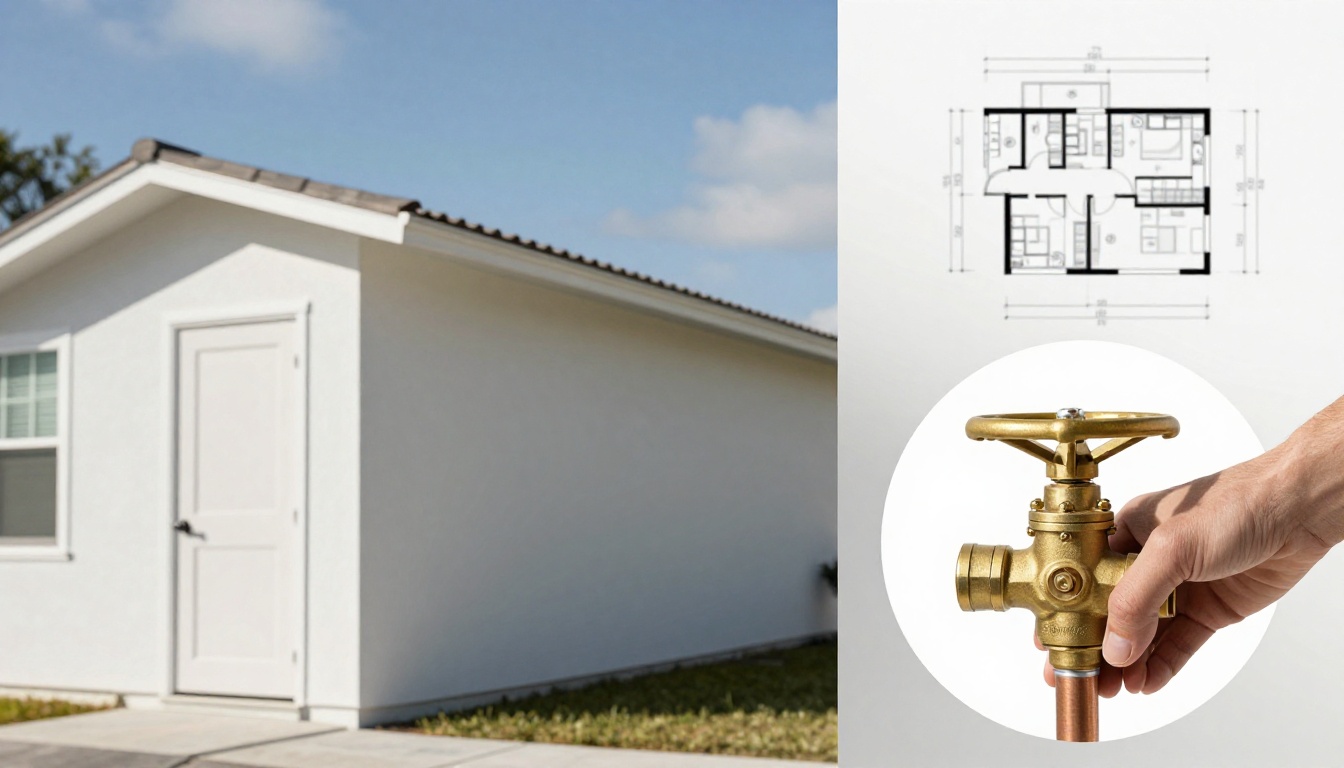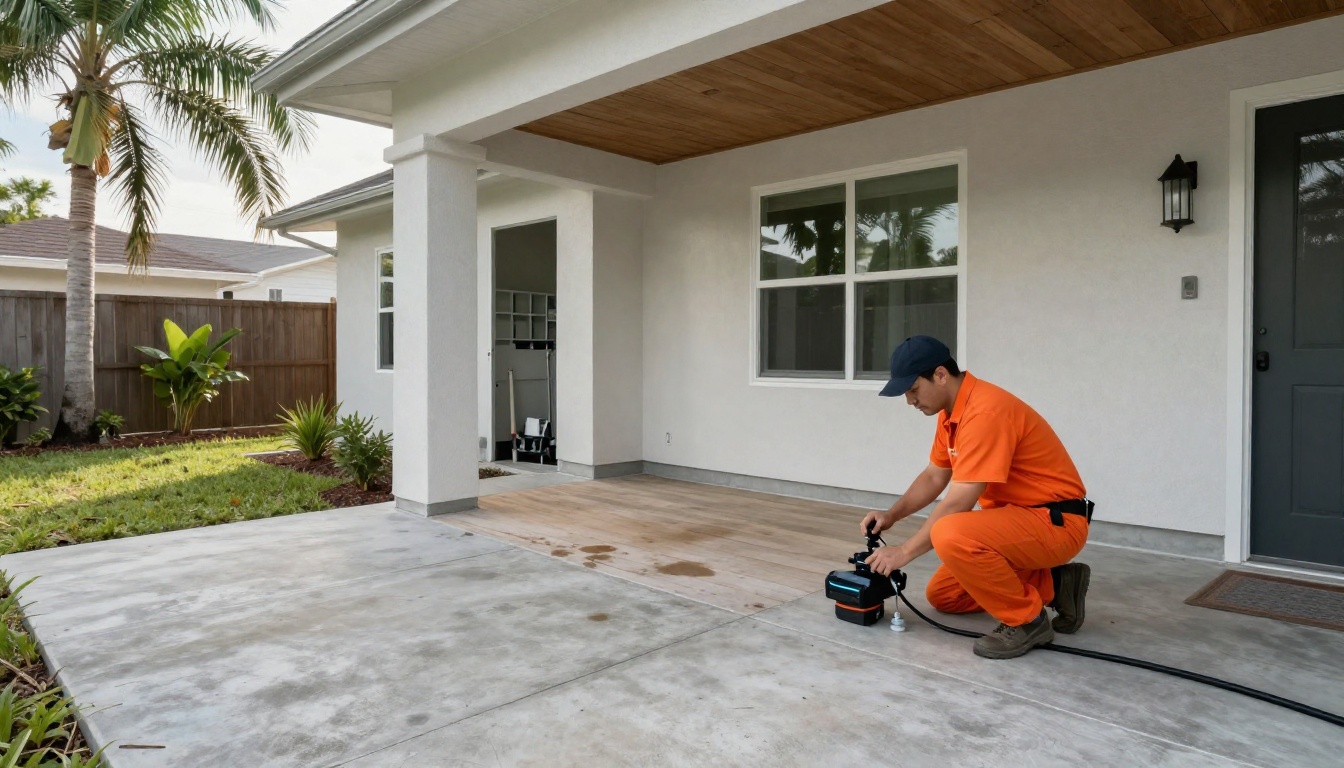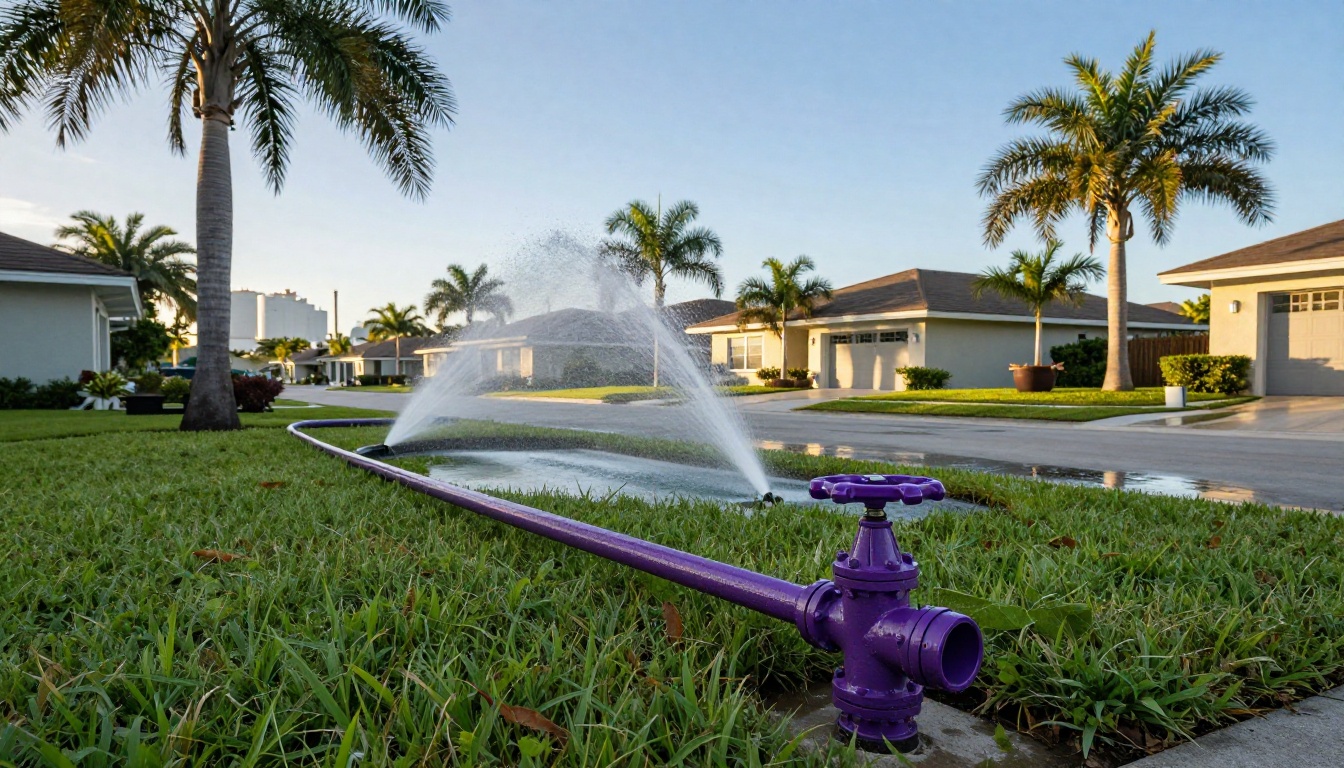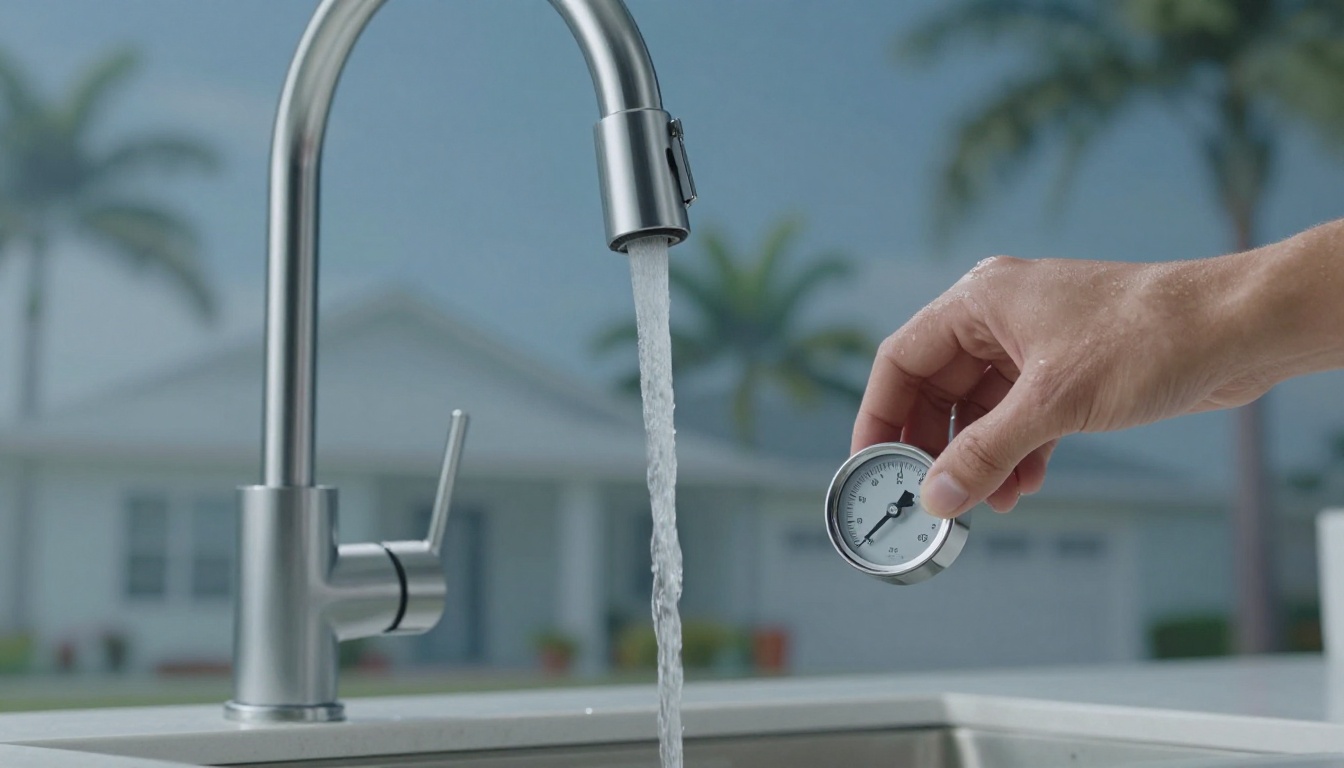Troubleshooting Common Lawn Irrigation Problems in Cape Coral
Troubleshooting Common Lawn Irrigation Problems in Cape Coral
Understanding Cape Coral’s Unique Irrigation Challenges
Cape Coral's unique environmental conditions can make lawn irrigation tricky for homeowners. The area's sandy soil struggles to retain water, leading to uneven moisture distribution and requiring adjustments to sprinkler systems. Additionally, saltwater intrusion poses a threat, especially near coastal areas, as it can damage plants and corrode irrigation components. These factors mean residents must be vigilant in maintaining their systems to ensure efficient water use.
Local regulations also play a significant role in shaping how homeowners manage their irrigation systems. Water restrictions are common, particularly during drought periods, and failing to comply can result in fines. These rules necessitate strategic planning, such as optimizing watering schedules and using smart controllers that adapt to weather conditions. Understanding these challenges is the first step toward troubleshooting and maintaining a healthy, compliant lawn.
Common Symptoms of Irrigation System Problems
One of the easiest ways to spot irrigation issues is by observing your lawn. Uneven watering patterns, dry patches, or overly saturated areas often indicate problems with sprinkler heads or system pressure. Erratic performance from pop-up sprinklers, such as heads failing to rise or spraying in unintended directions, is another red flag. These symptoms not only harm your lawn but also waste water, which can lead to higher utility bills.
Less obvious signs, like an unexpected spike in your water bill or a gradual decline in lawn health, may also signal underlying problems. A sudden increase in water usage could point to leaks or malfunctioning components, while poor grass growth might suggest inadequate watering. Identifying these subtle indicators early can prevent more costly repairs down the line.
Addressing Broken or Missing Sprinkler Heads
Broken or missing sprinkler heads are a common issue in Cape Coral, often caused by lawn mowers, foot traffic, or wear and tear over time. When a head is damaged, it disrupts the system's ability to distribute water evenly, leading to dry spots or flooding in certain areas. Ignoring this problem can result in wasted water and long-term damage to your lawn's health.
To address this, start by inspecting each sprinkler head for cracks, clogs, or misalignment. Replace any damaged heads with models compatible with your system, ensuring they're properly installed and leveled. If you're unsure about the process, consult your system's manual or seek advice from a professional. Taking prompt action will save water and keep your lawn looking its best.
Dealing with Low Water Pressure in the System
Low water pressure in an irrigation system can stem from several causes, including leaks, clogged sprinkler heads, or issues with valves. In some cases, the municipal water supply itself may be the culprit, especially during peak usage times. Regardless of the cause, low pressure reduces the effectiveness of your system , leaving parts of your lawn under-watered.
To troubleshoot, begin by checking filters and nozzles for debris that might be restricting flow. Inspect visible pipes for signs of leaks, such as wet spots or pooling water. If the issue persists, examine the main water source and consider consulting a plumber or irrigation specialist. Addressing low pressure promptly ensures your lawn receives the hydration it needs.
Adjusting and Fixing Irrigation Timers and Controllers
Improperly set timers or faulty controllers can lead to underwatering or overwatering, both of which harm your lawn. Many homeowners fail to adjust their systems seasonally , resulting in inefficient water use. For example, a timer set for summer rainfall levels may overwater during the drier winter months, wasting resources and damaging plant roots.
To fix this, reprogram your controller at the start of each season to match current weather conditions. Check the display for error messages or irregular behavior, and replace batteries if needed. If you're unsure how to proceed, refer to the manufacturer's instructions or call a professional. Regularly updating your timer settings ensures optimal performance year-round.
Rain Sensor and Weather-Based Troubles
Cape Coral requires all irrigation systems to have functioning rain sensors to prevent unnecessary watering during rainfall. A non-functional sensor can lead to overwatering, which wastes water and harms your lawn. If your system keeps running despite a downpour, the sensor is likely the issue.
To diagnose sensor problems, inspect the device for physical damage or debris obstruction. Test it by simulating rain and observing whether the system shuts off. If it doesn't, consider replacing the sensor. Keeping this component in good working order not only saves water but also ensures compliance with local regulations.
Identifying and Repairing Valve and Pipe Leaks
Leaks in irrigation valves or underground pipes are a frequent cause of water loss and uneven lawn coverage. Common failure points include worn-out seals, cracked pipes, or improperly seated valves. Left unaddressed, these leaks can lead to soggy patches, structural damage, and skyrocketing water bills.
To detect leaks, look for wet spots, listen for hissing sounds near valves, or monitor your water meter for unusual activity. Once identified, repair small leaks by replacing seals or patching pipes, but larger issues may require professional assistance. Prompt repairs prevent further damage and ensure your system operates efficiently.
Complying with Local Watering Restrictions
Cape Coral enforces strict watering restrictions to conserve resources and protect the environment. Residents must adhere to designated irrigation days based on their addresses and avoid watering during prohibited hours. Violating these rules can result in fines and unnecessary stress on your lawn.
To stay compliant, adjust your irrigation schedule according to local ordinances and seasonal changes. Use smart controllers that automatically adapt to restrictions, and educate yourself on drought guidelines. By following these practices, you'll maintain a healthy lawn while avoiding penalties and contributing to conservation efforts.
Troubleshooting Electrical Issues in Irrigation Systems
Modern irrigation systems rely on electrical components like controllers, wiring, solenoids, and sensors to function correctly. Faulty wiring or a malfunctioning solenoid can disrupt the entire system, causing zones to fail or timers to stop working. Understanding these components is key to diagnosing electrical problems.
Begin troubleshooting by testing connections with a multimeter to identify breaks or shorts. Always turn off the power before handling wires, and follow safety precautions to avoid injury. If the issue seems complex, don't hesitate to call a professional. Addressing electrical problems promptly keeps your system running smoothly.
DIY Fixes vs. Professional Repairs: When to Call an Expert
Many common irrigation issues, such as replacing sprinkler heads or cleaning filters, can be tackled by homeowners with basic tools and some patience. DIY fixes are cost-effective and empower you to take control of your system's maintenance. However, knowing your limits is crucial to avoiding further damage.
If you encounter persistent problems, such as recurring leaks, electrical malfunctions, or widespread system failures, it's time to call a professional. Look for certified specialists familiar with Cape Coral's unique challenges. Knowing when to seek expert help ensures your system remains efficient and compliant with local regulations.
Seasonal Maintenance to Prevent Common Problems
Regular seasonal maintenance is essential for catching irrigation issues early and preventing costly repairs. Start each spring with a thorough inspection, checking for broken heads, clogged nozzles, and proper timer settings. Cleaning and leveling sprinkler heads can also improve performance and extend their lifespan.
In addition to DIY checks, schedule an annual inspection by a professional to identify hidden problems and ensure compliance with local rules. This proactive approach not only maximizes your system's efficiency but also enhances the overall health and appearance of your lawn. Prevention is always better than cure.
Essential Tools and Resources for Homeowners
Equipping yourself with the right tools makes irrigation troubleshooting much easier. A trowel helps dig around sprinkler heads, while a multimeter aids in diagnosing electrical issues. Stock up on replacement parts like sprinkler heads and filters to handle common repairs quickly. Online tutorials and community workshops are excellent resources for learning more about irrigation maintenance.
Frequently Asked Questions about Lawn Irrigation in Cape Coral
Why does my irrigation system keep running during rain?
The most likely cause is a faulty or absent rain sensor, which is required by Cape Coral regulations. Rain sensors automatically shut off your system during rainfall to prevent overwatering. If yours isn't functioning, replace it promptly to comply with local laws and conserve water.
How do I know if I have a leak in my irrigation system?
Look for soggy patches, low water pressure, or a sudden increase in your water bill. To confirm, turn off all water sources and check your meter for movement. If the dial moves, you likely have a leak. Contact a professional if you're unable to locate or repair it yourself.
What is the best time to water my lawn under Cape Coral restrictions?
Watering is typically allowed between midnight and 10 a.m. on designated days, depending on your address. These times minimize evaporation and maximize absorption. Set your timer accordingly to stay compliant and ensure your lawn gets the hydration it needs.
My sprinkler heads are popping up but no water comes out. What’s wrong?
This could be due to clogged heads, a stuck valve, or electrical/solenoid failure. Begin by cleaning the nozzles and checking for blockages. If that doesn't work, inspect the valve and wiring. Persistent issues may require professional diagnostics to pinpoint the exact cause.
How often should I check my irrigation system?
Perform monthly visual inspections to catch minor issues early. Conduct a more thorough checkup annually, ideally by a professional, to ensure everything is functioning optimally. Regular maintenance prevents major breakdowns and keeps your system efficient and compliant.
Conclusion
Proactive troubleshooting and regular maintenance are vital for keeping your Cape Coral lawn healthy and vibrant. By understanding the symptoms of common irrigation problems and knowing when to tackle repairs yourself or call a professional, you can save money and protect the environment. A well-maintained system not only complies with local regulations but also enhances the beauty of your landscape.
Take action today by inspecting your irrigation system for potential issues and implementing the best practices outlined in this guide. For persistent or complicated problems, don't hesitate to reach out to a certified Cape Coral irrigation expert. Remember, preventive care is the key to long-term success and a lush, thriving lawn.




Get a Free Estimate
Got a plumbing issue? We’re here to help! Whether you need emergency repairs, routine maintenance, or have a question about our services, our team is ready to assist you.
